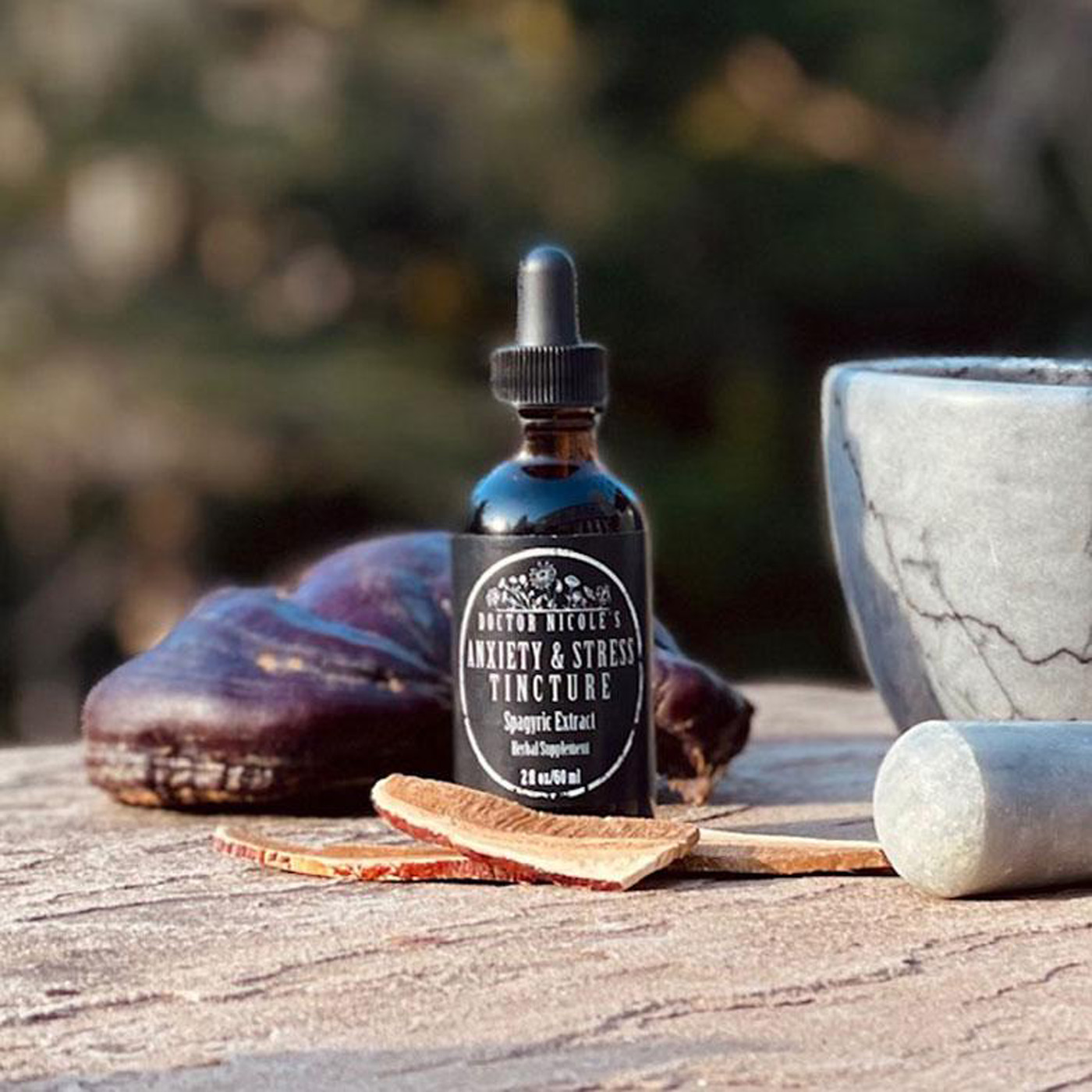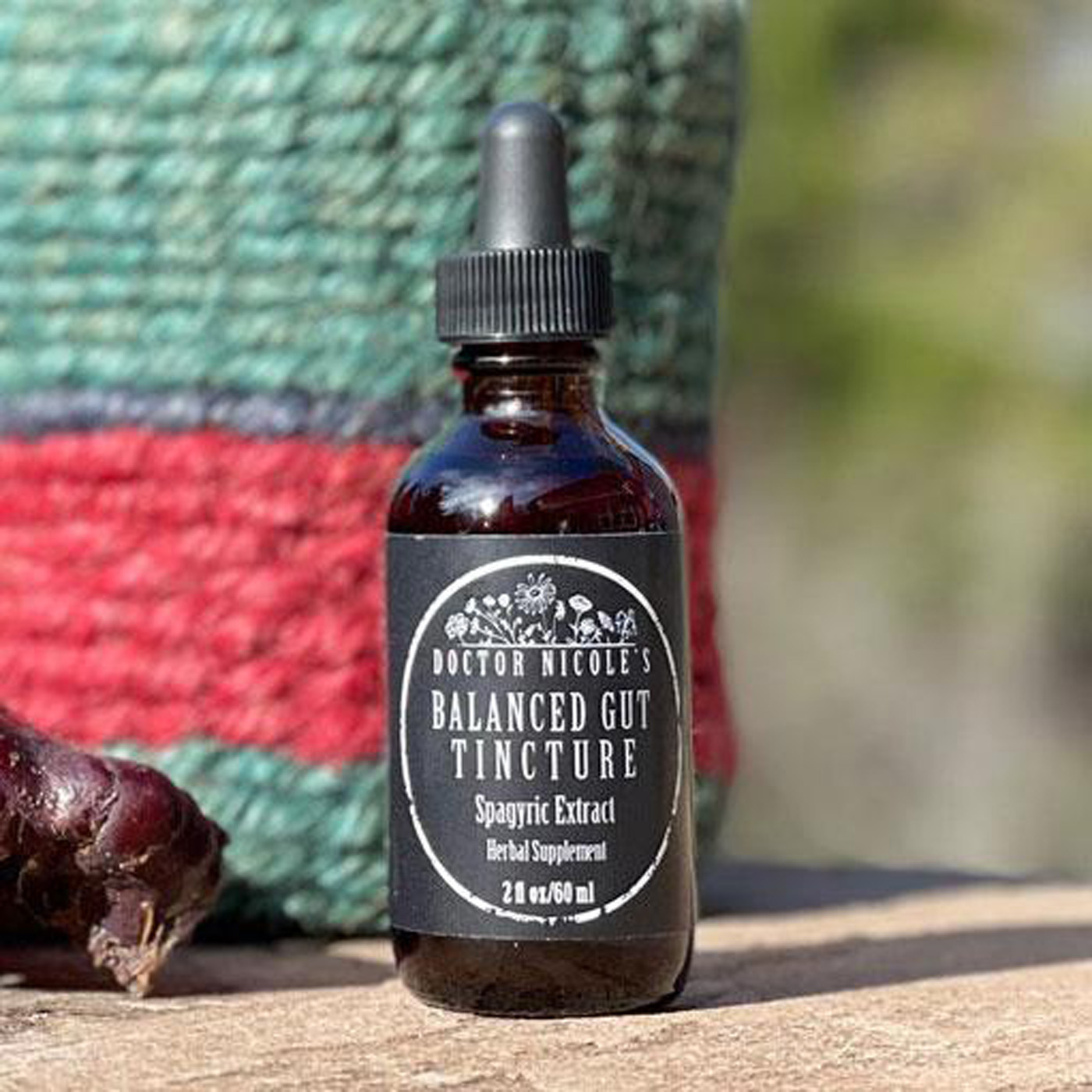A Significant Health Concern
A small, butterfly-shaped organ located in the front of the neck, the thyroid gland may be tiny but it’s powerful. If this gland malfunctions, it can cause a cascade of significant health issues such as weight gain/loss, fatigue, anxiety, heartbeat dysregulation, poor sleep, and more. In the United States alone, it is estimated that 20 million people currently suffer from thyroid conditions with women five to eight times more likely to be diagnosed than men. Astoundingly, many are unaware that they even have a thyroid issue — which is why it’s important to know the symptoms and natural treatment options for hypothyroidism versus hyperthyroidism.
Thyroid Issues: Symptoms and Solutions
Hypothyroidism
Hypothyroidism is associated with an underactive thyroid gland that isn’t producing or releasing adequate amounts of thyroid hormones. It can cause weight gain, fatigue, sleep and mood disorders, brain fog, cardiovascular issues, and hair loss. Those with autoimmune disorders such as Hashimoto’s, type 1 diabetes, rheumatoid arthritis, lupus, and celiac disease are at a higher risk for the condition.
Hypothyroidism can develop for a number of reasons. One example may be due to a poor diet that is deficient in iodine and selenium — two nutrients that are crucial for the proper function of the thyroid. Hashimoto’s is frequently a cause of hypothyroidism when the body mistakenly attacks the thyroid gland, thinking it is a threat. This results in body-wide inflammation. Leaky gut syndrome is often involved in hypothyroidism because it plays a role in nutrient deficiencies, while also increasing inflammation and autoimmunity.
Gastrointestinal issues like leaky gut trigger the immune system to go into overdrive. When the immune system is overactive, this triggers existing autoimmune conditions like Hashimoto’s (underactive thyroid) and Graves’ disease (overactive thyroid) to worsen. Herbal tinctures that can help thyroid function include my Balanced Gut Blend and Sleep Blend Formula.
Rarely, hormonal imbalances can be the root issue if there is a problem with the pituitary gland and it fails to regulate thyroid hormones properly. High stress levels, lack of exercise, and certain medications for cancer, cardiovascular problems, and psychiatric disorders can contribute to hypothyroidism as well.
How to Improve Low Thyroid Function
The connection between the thyroid and gut health is well-documented. Eating a diet that addresses hypothyroidism is key to support the healthy function of the thyroid and minimize symptoms. Wild-caught fish that is rich in omega-3 fatty acids will help to balance hormones and improve thyroid function. Except in the case of Hashimoto’s, make sure you are getting enough iodine from seaweed like kelp, dulse, and nori. Bone broth will assist in healing the gut as will probiotic-rich foods like kefir, kimchi, yogurt, kombucha, natto, and sauerkraut. Coconut oil boosts energy, supports brain function, and improves metabolism. Don’t forget to bump-up your fruit and vegetable intake to encourage digestive, cognitive, and hormonal health.
Food to avoid: refined sugar, soy, gluten, conventional dairy, refined flour products.
Lifestyle tips include getting plenty of exercise, establishing a solid sleep routine, and practicing stress management.
Herbal Help: Medicinal herbs that assist with hypothyroidism include Cordyceps, Eleuthero, Evening Primrose Oil, Ginger, Guggul, Licorice Root, Reishi, and Stinging Nettle. Scroll down for more information about cordyceps, reishi, and stinging nettle.
Hyperthyroidism
When the thyroid gland becomes overactive, it causes a condition known as hyperthyroidism. It tends to affect women between the ages of 20 and 40. Symptoms include weight loss, heartbeat irregularities, fatigue, muscle weakness, disrupted sleep, irritability, anxiety, and a sensitivity to heat. A majority of cases are related to the autoimmune disorder Graves’ disease, which causes the thyroid to produce excessive amounts of thyroid hormone. It can also be caused by thyroid nodules, thyroiditis, and taking too much iodine. Leaky gut syndrome, food sensitivities, hormonal issues, and being overly toxic can trigger hyperthyroidism as well.

Natural Treatment for an Overactive Thyroid
A whole food, anti-inflammatory diet can help to reduce symptoms of an overactive thyroid. Focus on fresh vegetables and fruits along with lean protein. Bone broth is also beneficial as it helps to heal the gut and alleviate toxicity. Green juices and lemon water will help with detoxification as well. Steer clear of processed foods, iodine, conventional dairy, gluten, refined sugar, and artificial flavors.
As with hypothyroidism, a regular exercise routine, getting enough quality sleep, and stress management are all important for healthy thyroid function.
Herbal remedies that assist with hyperthyroidism include lemon balm, bugleweed, cordyceps,and stinging nettle.
Bugleweed has been shown to help improve symptoms for both mild hyperthyroidism and Graves’ disease; it’s believed to act against the antibodies that cause Graves’ disease. Studies show that it inhibits T4 output and also decreases T3 levels.
Cordyceps Mushroom has been shown to be beneficial for both hypothyroidism and hyperthyroidism. It improves adrenal function, helps restore thyroid balance by increasing helper T cells and cytotoxic T cells, and helps lower levels of thyroid antibodies in both Hashimoto’s and Graves’ patients. Cordyceps is also rich in selenium, which has been shown to reduce thyroid antibody levels. Best taken as a dual-extracted Cordyceps Tincture.
Lemon Balm helps normalize an overactive thyroid. Extracts from both bugleweed and lemon balm have been found to inhibit stimulation of thyroid hormone production by both TSH and Graves’ antibodies. Lemon balm can reduce excessive thyroid activity and inhibits TSH, which in turn helps to reduce the excessive secretion of thyroid hormone. Use as a Lemon Balm Tincture or as a tea.
Stinging Nettle’s anti-inflammatory effects work with both underactive and overactive thyroid, as inflammation in the thyroid contributes to both hypothyroidism and hyperthyroidism. For those with an underactive thyroid, nettle can reverse iodine deficiency to help the thyroid function more optimally. Find it here as an easy-to-use daily tincture or drink daily as a tea.
Additionally, my Anxiety & Stress Tincture can help in relieving tension with potent adaptogens and medicinal mushrooms that include ashwagandha, lemon balm, lion’s mane and reishi. To calm a racing mind and body, my Sleep Blend Formula contains soothing extracts of valerian root, hops strobile flower, German chamomile, and passionflower as well as magnesium glycinate — you can read more about these exceptional remedies here.
Herbs for Healing a Leaky Gut
If you have thyroid issues, you need to make sure that you have a healthy, balanced gut.. The following herbs help to repair the intestinal tract and restore healthy gut function. Each is found in my Balanced Gut Tincture in the apothecary.
Suggested use: take 2 dropperfuls 3x/day for a month. Continue 1-2x/day for maintenance.
Lion’s Mane Mushroom: High in antioxidants, lion’s mane protects the lining of the stomach, and helps with gut inflammation and H. pylori. Take it as a tea or a tincture.
Marshmallow Root and Slippery Elm: These herbs help form a protective layer in the gut and help the gut to regenerate.
Reishi Mushroom: Reishi helps leaky gut through its anti-inflammatory action. It is also high in beneficial beta-glucans, glycoproteins, and triterpenes to support gut health. Best taken as a dual-extracted mushroom tincture.
Turkey Tail Mushroom: An excellent anti-inflammatory and source of prebiotics, turkey tail encourages a healthy microbiome by controlling the overgrowth of candida, while also feeding the “good” bacteria in the gut. For highest potency and effectiveness, use a dual-extracted turkey tail tincture.
Remember, if you have thyroid issues, make sure that you have a healthy, balanced gut. Purchase your Balanced Gut Tincture today at Nicole’s Apothecary.
Wishing you the best of health!
Nicole Apelian






